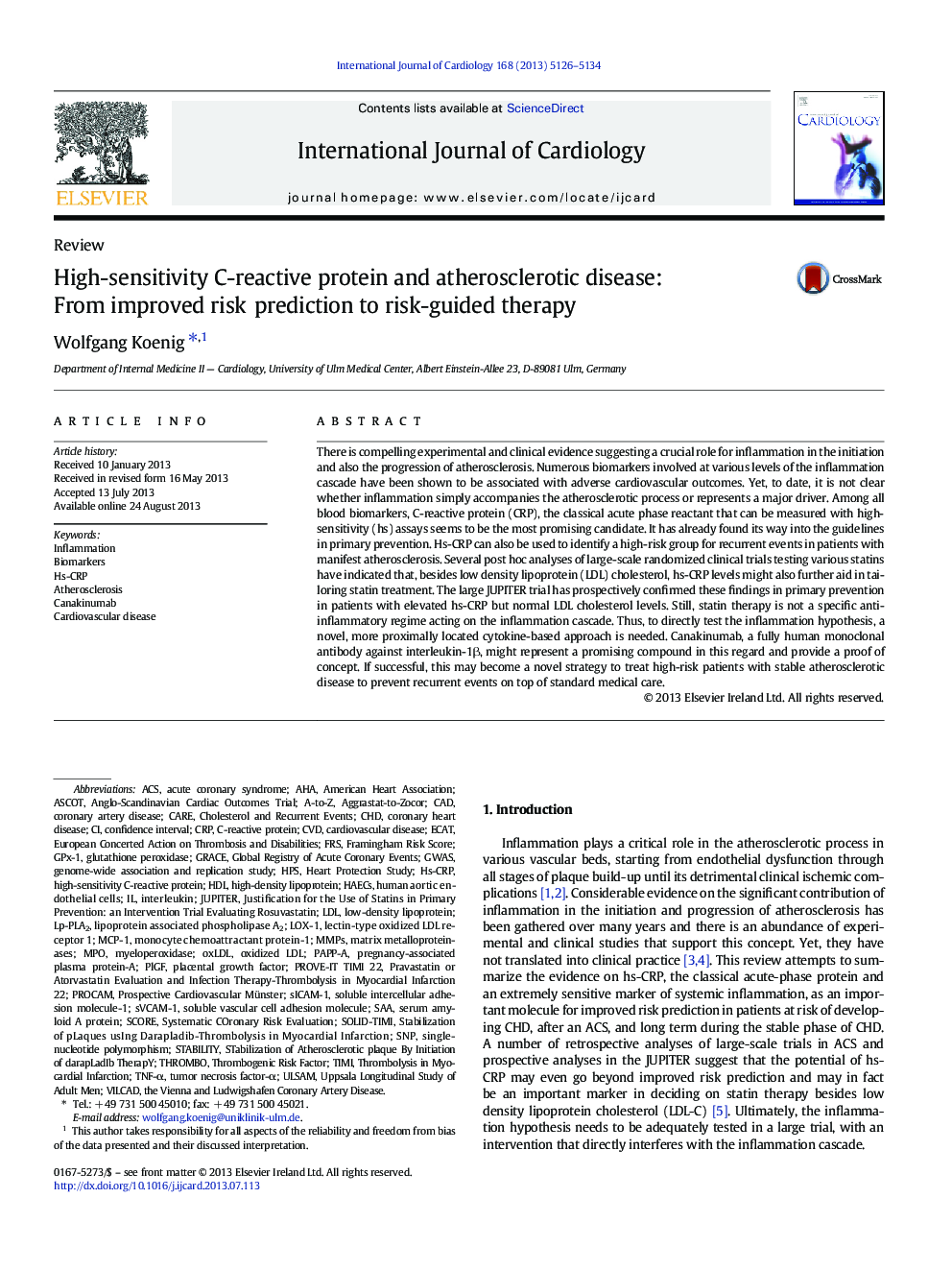| Article ID | Journal | Published Year | Pages | File Type |
|---|---|---|---|---|
| 5975023 | International Journal of Cardiology | 2013 | 9 Pages |
There is compelling experimental and clinical evidence suggesting a crucial role for inflammation in the initiation and also the progression of atherosclerosis. Numerous biomarkers involved at various levels of the inflammation cascade have been shown to be associated with adverse cardiovascular outcomes. Yet, to date, it is not clear whether inflammation simply accompanies the atherosclerotic process or represents a major driver. Among all blood biomarkers, C-reactive protein (CRP), the classical acute phase reactant that can be measured with high-sensitivity (hs) assays seems to be the most promising candidate. It has already found its way into the guidelines in primary prevention. Hs-CRP can also be used to identify a high-risk group for recurrent events in patients with manifest atherosclerosis. Several post hoc analyses of large-scale randomized clinical trials testing various statins have indicated that, besides low density lipoprotein (LDL) cholesterol, hs-CRP levels might also further aid in tailoring statin treatment. The large JUPITER trial has prospectively confirmed these findings in primary prevention in patients with elevated hs-CRP but normal LDL cholesterol levels. Still, statin therapy is not a specific anti-inflammatory regime acting on the inflammation cascade. Thus, to directly test the inflammation hypothesis, a novel, more proximally located cytokine-based approach is needed. Canakinumab, a fully human monoclonal antibody against interleukin-1β, might represent a promising compound in this regard and provide a proof of concept. If successful, this may become a novel strategy to treat high-risk patients with stable atherosclerotic disease to prevent recurrent events on top of standard medical care.
